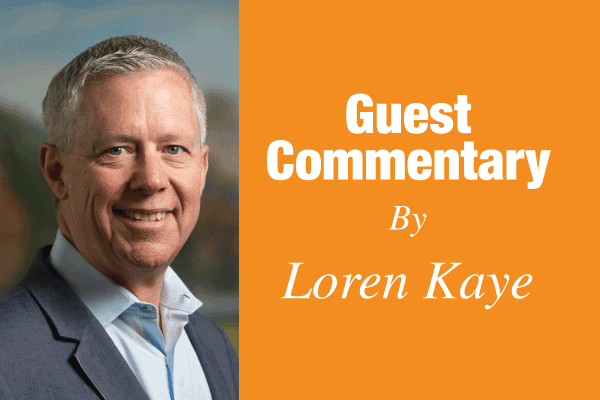
It’s full steam ahead for the Newsom administration’s zero-emission vehicle (ZEV) strategy. But this enthusiasm for a new generation of automobile technology may degrade the very roads they drive upon.
The Governor kicked his clean car initiative into high gear last September with an executive order requiring all new cars and passenger trucks sold in California be zero-emission by 2035.
He went further in January by earmarking nearly $1.5 billion of one-time and future revenues to increase the pace and scale of new electric vehicle charging and hydrogen fueling stations, and provide subsidies for new and used ZEVs and equipment.
Bad News for Mobility
These carrot-and-stick policies may substantially advance the sales and use of ZEVs. But for every gasoline- or diesel-powered vehicle retired and not replaced, California’s enormous transportation network will get a little grittier.
The ambition to replace combustion engine vehicles with ZEVs should be shelved as long as the erosion of fuel tax revenues for transportation system support remains unaddressed. The Legislature should evaluate the wisdom of mandating a new fuel supply for the vehicle fleet that undermines the basis for funding the state and local transportation system.
This is but one of several issues collateral to the ZEV mandate that affect mobility for residents, and that so far state leaders have not come to terms with.
Growing Disconnect
California policy makers have long known that improved efficiencies of combustion engines and the introduction of vehicles that do not use gasoline or diesel erode transportation revenues. Even without the Governor’s directive, gas taxes will be inadequate to meet future system repairs and improvement because gasoline use is becoming disconnected from road use.
In a triumph of technology and market forces, cars have become far more fuel efficient, driving down revenues from the gas tax. Legislators recognized this in 2017 when, as part of the comprehensive transportation tax and revenue bill, they included a first-ever $100 fee on zero-emission vehicles to ensure ZEV users help pay for the roads.
But this modest fee was not designed to offset the anticipated transition from gasoline and diesel to electricity and hydrogen.
Eroding Tax Base
A recent study by the Mineta Transportation Institute at San Jose State University took a careful look at economics, travel behavior, vehicle fleet trends, and policy choices to develop six transportation revenue scenarios.
In five of the six scenarios, researchers found revenues from gasoline and diesel sales would decrease from $2 billion to $4 billion in inflation-adjusted revenues by 2040.
This tax erosion from gasoline and diesel taxes that today account for nearly three-quarters of state revenues for the upkeep and improvement of transportation systems would in most cases not be made up from new taxes on vehicle sales and ZEVs.
Road Users Fee
The solution to this revenue mismatch is to stop depending on a diminishing revenue source. Instead, the Newsom administration and Legislature should reinvigorate a flagging effort to research and introduce a road users charge—in effect trading taxes on fuels for a fee on miles traveled.
This is not a new idea. Since 2017, state policy makers have had before them a road map to test and implement the next generation in transportation finance—a fee based on the actual use of the state transportation network that puts a premium on user choice and personal privacy protection.
In the spirit of a true user charge, the proposal envisions a broad application of the mileage fee, with no exemptions and no rate differentials—at least in the testing phase. The fee would replace, not add to, the existing gas tax.
Commission Recommendation
Just last year the state’s own California Transportation Commission declared, “the gas tax clearly will not be a sustainable financing mechanism for transportation in the coming decade and therefore work needs to accelerate to implement a per mile road charge as an alternative.” The Commission recommended the Legislature authorize a pilot program to test actual revenue collection for a select group of vehicles.
The timing of this couldn’t be better. President Biden’s choice for Transportation Secretary, Pete Buttigieg, is a proponent of road user charges, floating the idea of such a fee to enhance the federal highway trust fund—likely in recognition of the new administration’s commitment to raise automobile fuel efficiency standards.
For more than half a century, Californians have invested heavily in a state transportation network that serves commerce, the workforce and social cohesion, connecting Californians to each other and the world. Policy makers should maintain our historic commitment to this important asset even as they embark on the difficult task of reducing vehicle carbon emissions.
Loren Kaye is president of the California Foundation for Commerce and Education, a think tank affiliated with the California Chamber of Commerce.

